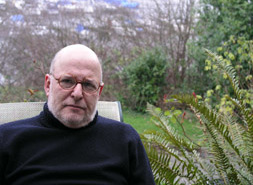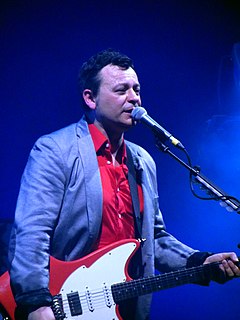A Quote by John Shelby Spong
If you want to be a Roman Catholic scholar and write, you've got to write in such a way that nobody understands what you're saying, and then you're thought to be profound.
Quote Topics
Related Quotes
I've always thought that the balance between the side of my mind that knows what it is doing and the side that really hasn't got a clue has to be carefully maintained because if you write too knowingly then you get chilly, and if you write too unknowingly you write bollocks that nobody else can understand.
At the evident risk of seeming ridiculous, I want to begin by saying that I have tried for much of my life to write as if I was composing my sentences to be read posthumously. I hope this isn't too melodramatic or self-centred a way of saying that I attempt to write as if I did not care what reviewers said, what peers thought, or what prevailing opinions may be.
I write what I want to write, and then, when it's finished, I use my judgment to see whether or not I think it's intrusive. If it is problematic, then I ask those involved. I won't necessarily do what they say. But I do consult. I haven't had too many problems. Nobody's really gotten angry at me. Nobody, as far as I know, has felt betrayed.
One of my big revelations was that nobody cares whether you write your novel or not. They want you to be happy. Your parents want you to have health insurance. Your friends want you to be a good friend. But everyone’s thinking about their own problems and nobody wakes up in the morning thinking, ‘Boy, I sure hope Sam finishes that chapter and gets one step closer to his dream of being a working writer.’ Nobody does that. If you want to write, it has to come from you. If you don’t want to write, that’s great. Go do something else. That was a very liberating moment for me.
I would agree with that. But when I write lyrics, personally I don't care if the person who is listening to it understands what I'm saying or not; and I write them like that specifically. You know, I have my views; I don't feel the need to have people have the same views as me. So if they find the meaning in the songs and it's the same meaning as the one I intended then fine and dandy and if they don't, they don't.
I write because to write a new sentence, let alone a new poem, is to cross the threshold into both a larger existence and a profound mystery. A thought was not there, then it is. An image, a story, an idea about what it is to be human, did not exist, then it does. With every new poem, an emotion new to the heart, to the world, speaks itself into being.
I spent my junior year in Switzerland. On the way back home, I spent some time in England, and I remember going to Hyde Park Corner. And there was a Roman Catholic priest in his collar, standing on a soapbox, preaching the Catholic faith and being heckled by a group. And I thought, 'My goodness.' I thought that was admirable.






































